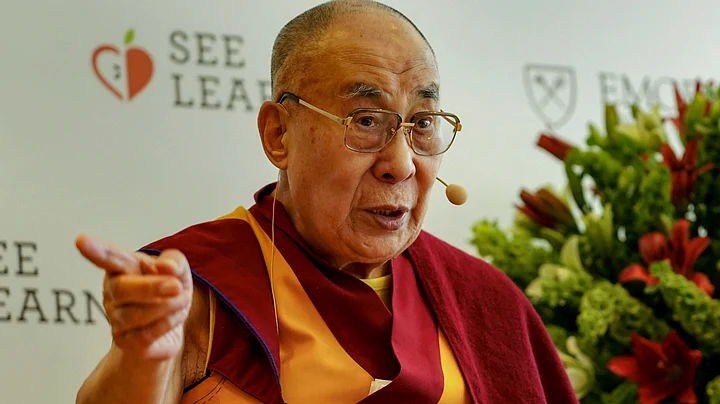Spiritual leader the Dalai Lama on Thursday, 4 April, said people from Tibet have been seeking a mutually acceptable solution to the Tibetan issue with China since 1974 but Beijing considers him a “splittist” though he isn't one.
The Tibetan spiritual leader, in response to questions during a press conference here, also said, the Tibetans were “open” to such a solution, while reiterating that he was not seeking Tibet's independence from China.
“In 1974, we decided to not seek independence and seek a mutually acceptable solution. And, in 1979, we established a direct contact with the Chinese government. So basically, our side is open,” the Dalai Lama said.
“I am not a splittist, but Chinese government considers me a splittist,” he said.
So, the Chinese government “wants me to fight for Tibet’s independence”, he added in a lighter vein, drawing laughter from the audience. “Splittist” is a person who advocates separation from a larger body.
He said he preferred Tibet remaining with China, with “some kind of a reunion”.
The Tibetan spiritual leader said, both sides can mutually benefit each other by harnessing their old links, and while China can help Tibet economically, Tibet can offer its knowledge to China.
"China and Tibet have century-old ties, and through marriage also have very old links.
The Dalai Lama also said he admired the "spirit of the European Union".
"France and Germany were arch-enemies during World War II, but after the war, common interests were put above individual interests... The creation of the EU was wonderful," the 83-year-old said.
To a question on China's stand on the next Dalai Lama, the Tibetan spiritual leader said, "If I live for another 10-15 years, political situation in China will change. but, if I die in next few years, Chinese government will show the reincarnation must happen in China."
China has said that the successor to the Dalai Lama must be chosen according to the religious rituals and historical conventions as well as the backing from the ruling Communist Party.
Since he fled Tibet in 1959 to escape from the Chinese occupation, the Dalai Lama has been keeping China on tenterhooks about his successor.
